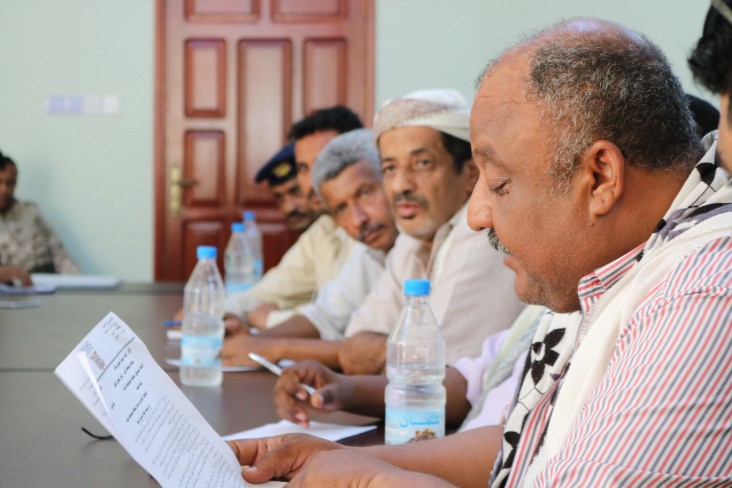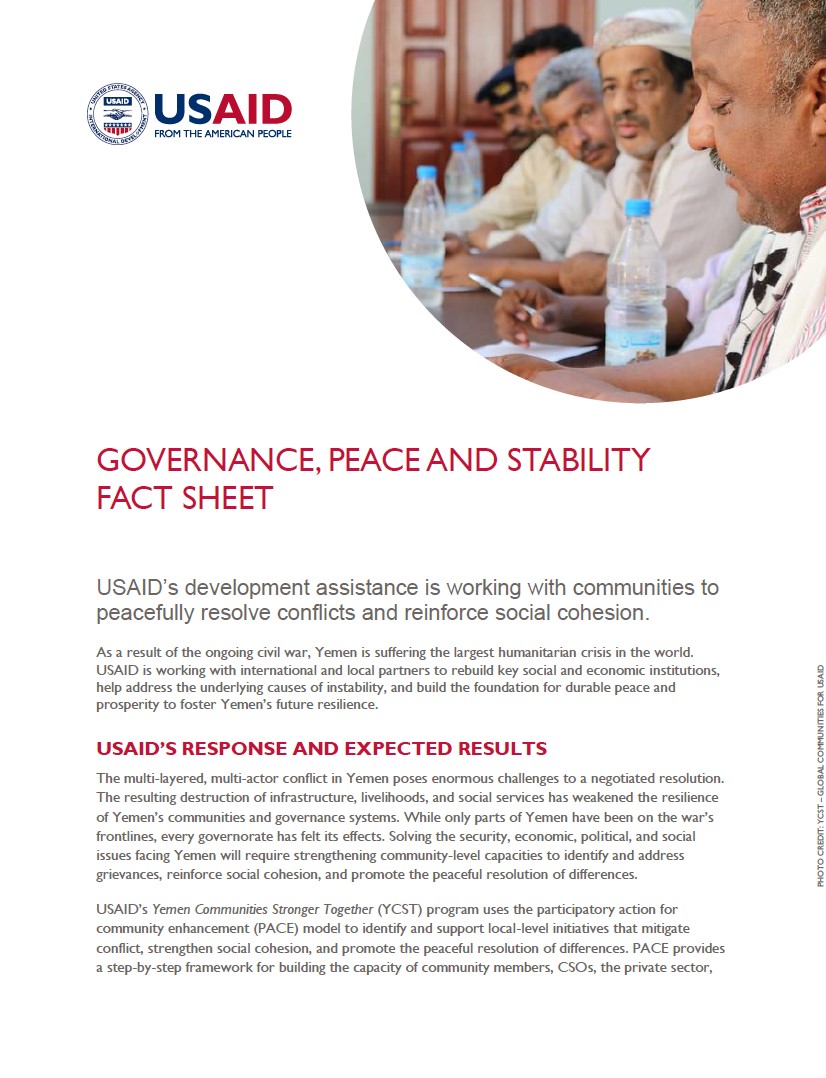Speeches Shim

USAID’s development assistance is working with communities to peacefully resolve conflicts and reinforce social cohesion.
As a result of the ongoing civil war, Yemen is suffering the largest humanitarian crisis in the world. USAID is working with international and local partners to rebuild key social and economic institutions, help address the underlying causes of instability, and build the foundation for durable peace and prosperity to foster Yemen’s future resilience.
USAID’S RESPONSE AND EXPECTED RESULTS
The multi-layered, multi-actor conflict in Yemen poses enormous challenges to a negotiated resolution. The resulting destruction of infrastructure, livelihoods, and social services has weakened the resilience of Yemen’s communities and governance systems. While only parts of Yemen have been on the war’s frontlines, every governorate has felt its effects. Solving the security, economic, political, and social issues facing Yemen will require strengthening community-level capacities to identify and address grievances, reinforce social cohesion, and promote the peaceful resolution of differences.
USAID’s Yemen Communities Stronger Together (YCST) program uses the participatory action for community enhancement (PACE) model to identify and support local-level initiatives that mitigate conflict, strengthen social cohesion, and promote the peaceful resolution of differences. PACE provides a step-by-step framework for building the capacity of community members, CSOs, the private sector, traditional leaders, and local government officials to collaboratively identify and address community issues through conflict mitigation and service delivery projects. YCST also builds the capacity of formal and informal leaders, organizations and networks to serve as neutral arbitrators and peace-builders that can meet community and constituent needs. Through a small grants mechanism, grants might support: positive engagement of youth in community and civic life, build unity and tolerance across historical or other divides, promote the use of innovative tools to reconnect communities and reignite pride in commonalities, amplify women’s participation in community peace-building and/or service delivery, etc.
Through this program, USAID is piloting stabilization programming in four communities. Stabilization programming supports locally legitimate authorities to rapidly and effectively respond to citizen priorities that, if addressed, will contribute to a reduction in or the risk of localized violent conflict, including through strengthening citizen perceptions that their local authorities are credible and capable. The USAID/Yemen developed stabilization assessment framework is also being tested as part of this programming. Lessons learned will be used to adapt this methodology for future use.


Comment
Make a general inquiry or suggest an improvement.